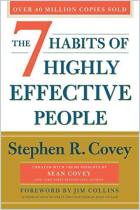
How to Grow Leaders
The Seven Key Principles of Effective Leadership Development
Read or listen offline
Recommendation
Rarely does a revolutionary write the history of his own revolt. However, that’s exactly what John Adair does in this book. Adair is respected internationally in the field of leadership. His 1968 classic, Training for Leadership, was a pioneering volume on leadership development. Although his work initially received relatively little attention in the U.S., it contributed to the current "leadership revolution," which has had a powerful impact on how companies train leaders. Today, in part thanks to Adair and others like him, companies no longer assume that "you either have it or you don’t" when it comes to leadership potential. They are more willing to accept the idea that managers can be leaders, too, and should be trained for that role. Adair’s book doesn’t just peer in the rearview mirror of history - it casts a steady, discerning gaze at the road ahead as well. Using elegant, thoughtful prose enhanced with apt anecdotes and quotations, Adair establishes seven key principles of leadership development. His intriguing conclusion: while companies may mold the raw material of leadership, only societies and families can actually provide it. If "lead, follow or get out of the way" is your motto, getAbstract says have confidence - John Adair is marching to his rightful place at the head of the leadership pack. A must read.
Take-Aways
About the Author
John Adair is an internationally recognized authority on leadership. He has written more than 50 books and articles on leadership and management, including Not Bosses But Leaders, Training for Leadership and The Inspirational Leader. He is a highly regarded speaker and was named China’s first Honorary Professor of Leadership.




















Comment on this summary or 开始讨论